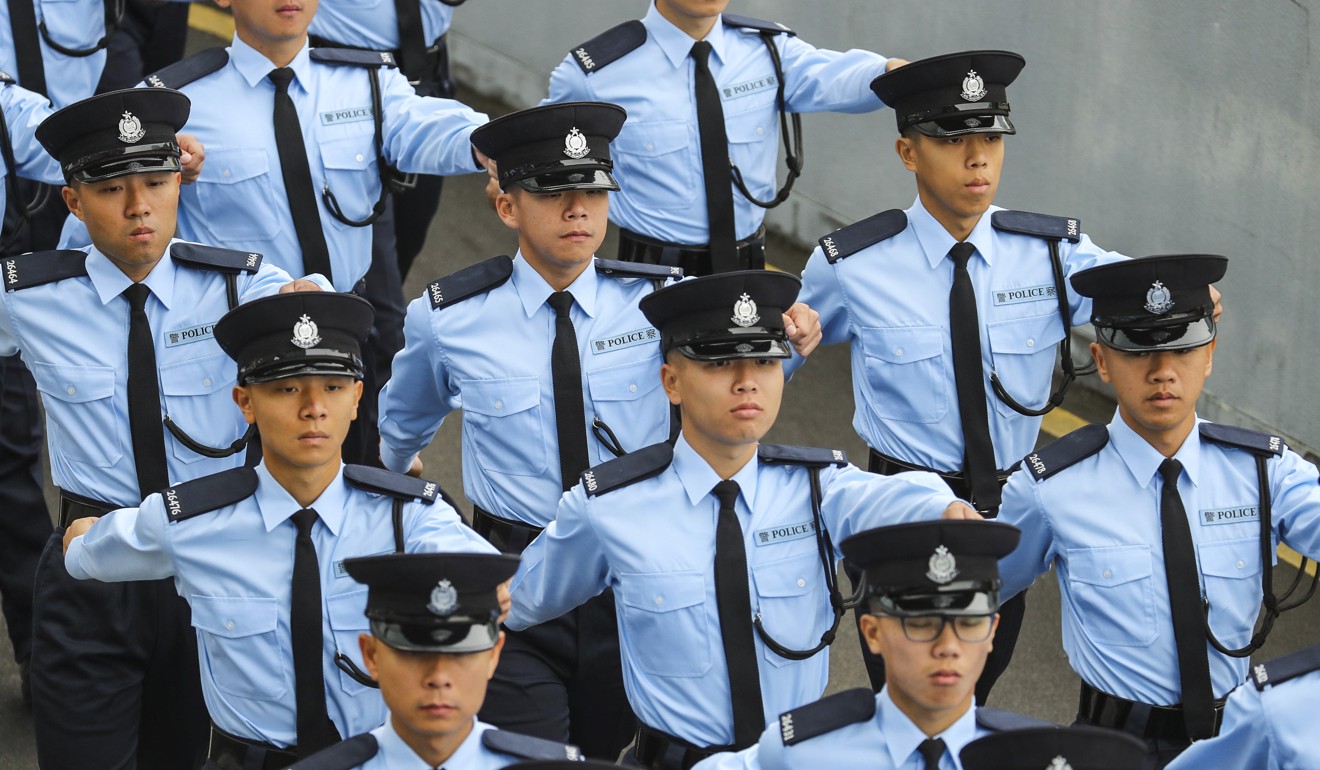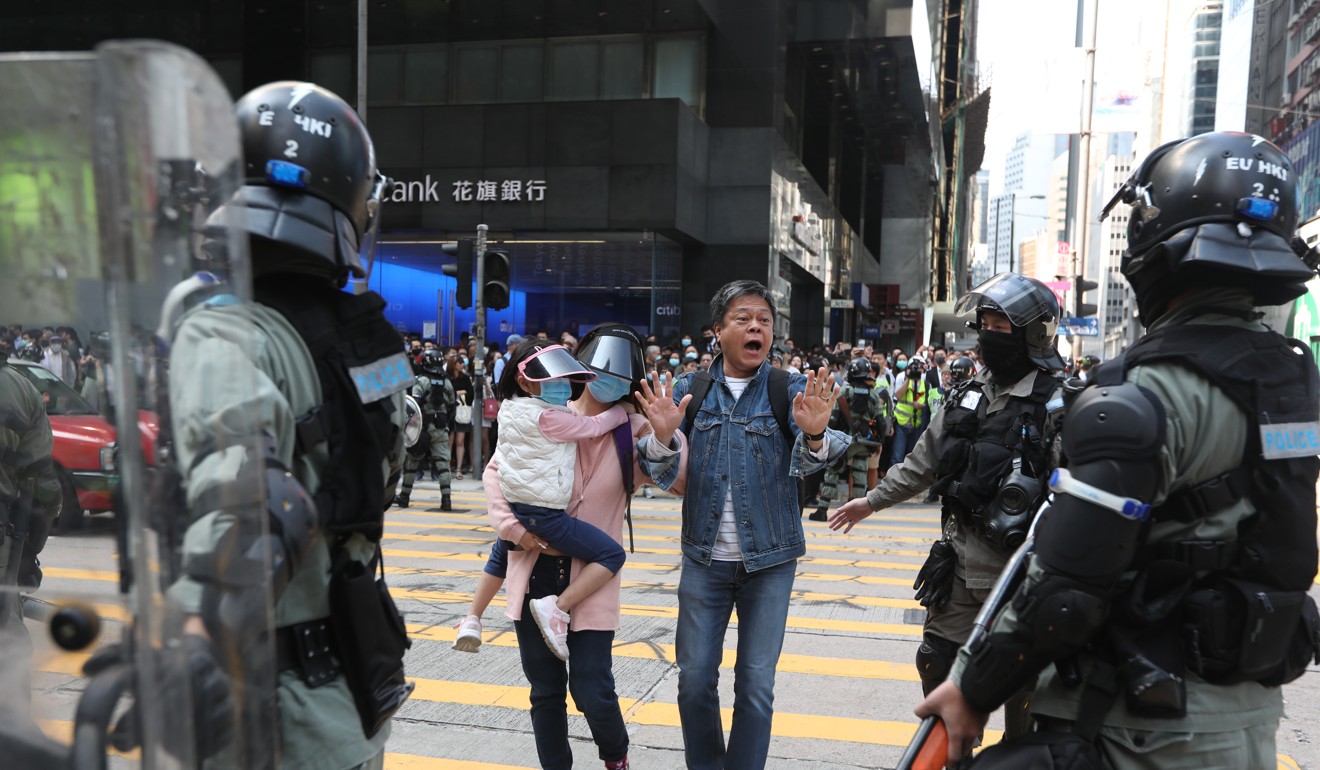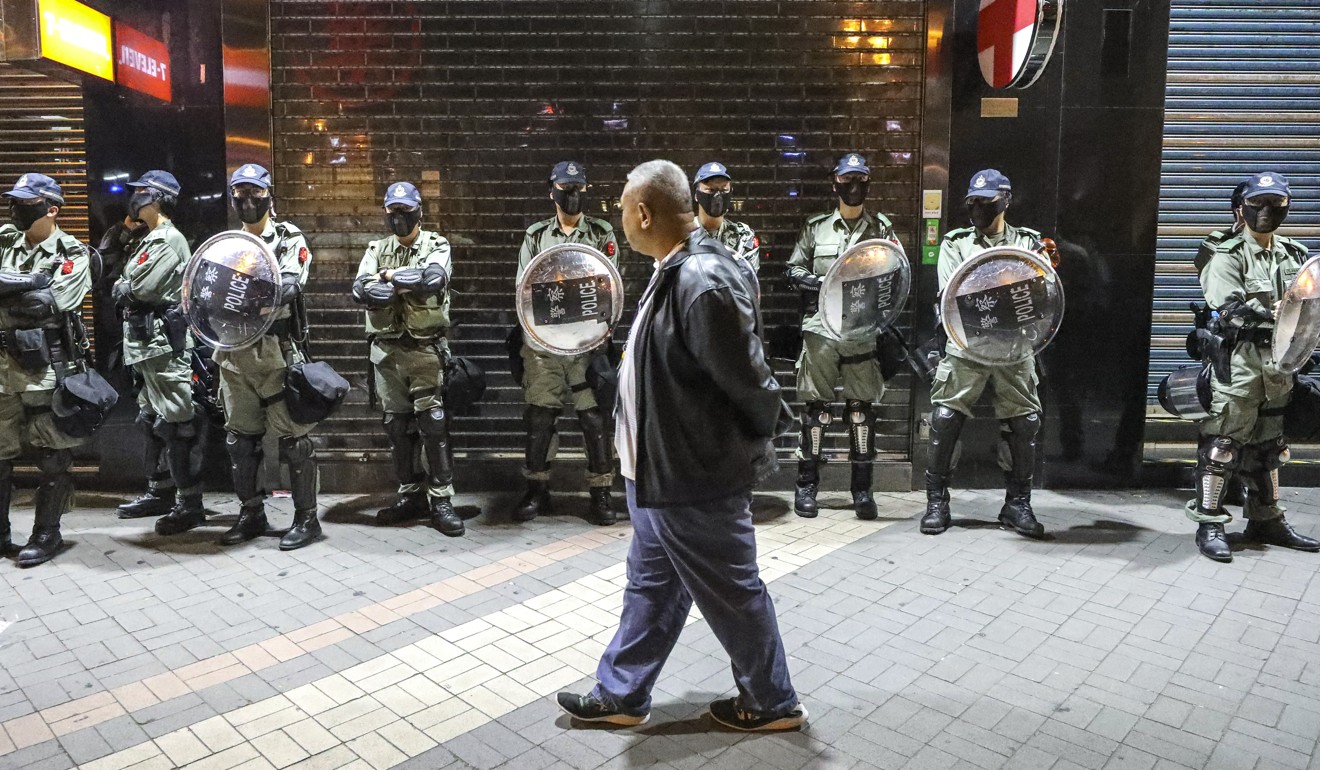
Hong Kong police to ramp up manpower by more than 7 per cent with 2,500 new posts in ‘biggest boost since 1997’
- Force insiders cite latest budget announcement and say this is to deal with more social unrest in a city rocked by anti-government movement since last June
- Proposal raises eyebrows from pan-democratic lawmakers, who say they will vote against it
Hong Kong’s police force will ramp up manpower by more than 7 per cent in its biggest boost in decades, with an extra 2,500 posts to cope with operational needs, according to force insiders citing the latest budget address.
The figures also showed that police overtime pay and other allowances in the 2019/20 financial year soared to HK$2.5 billion (US$321 million), 10 times the original estimate of HK$256 million.
While the force will record the largest number of new posts across all government departments, it ranked only 14th in percentage growth in expenditure.
The three government wings primed to spend the most are the Financial Services and the Treasury Bureau, which will oversee the HK$10,000 cash handouts to all adult Hongkongers, the Housing Department and the Environment Bureau.

Financial Secretary Paul Chan Mo-po’s budget proposal on Wednesday showed that boosting police headcount by 2,543, adding to its 35,000-strong workforce, would cost HK$21.9 billion, raising operating expenses by 24.7 per cent for the coming financial year.
The Independent Police Complaints Council, meanwhile, received 4.4 per cent less funding than last year, with a drop from HK$105 million to HK$100 million. The police watchdog said the larger budget last year was because of its involvement in a TV drama series.
A police source said the force’s new posts were to cope with operational needs arising from the possibility of more social unrest.

Hong Kong has been rocked by anti-government protests since last June, sparked by the now-withdrawn extradition bill.
The coronavirus epidemic in the city has further heightened anti-mainland China sentiment and distrust in the government, over its handling of the health crisis.
A high-ranking police officer said he believed the creation of the new posts would be the biggest manpower boost for the force since 1997, when the city returned to Chinese rule.
But he said it would be a “great challenge” to recruit new staff as fewer candidates might come forward because of the force’s battered image and troubled relationship with the public, arising from the months of unrest.
Wary Hongkongers welcome cash handout, but wonder when they’ll get it
“We have to do more in different aspects, such as publicity to attract more applicants,” he said. But he added that the requirements to select candidates would not be lowered.
Another senior officer said police branches to be boosted included the crime unit, patrol sub-unit and Police Tactical Unit.
He said crime squad officers were currently busy handling protest-related cases as more than 7,000 people had been arrested, including for rioting, possessing explosives or firearms without a licence, arson, criminal damage and unlawful assembly.
Since last August, the force has had to suspend patrols, with manpower stretched by handling protests.
According to the budget address, total police spending under “specialist supplies and equipment”, a broad category covering firearms and anti-riot equipment, will be doubled from HK$300 million to HK$612 million.
The force will also replace six more armoured vehicles in the coming year, each at a cost of about HK$12.7 million.
The Post has reached to police for a response.
Lawmaker targets cabby who hit protesters in private prosecution
Lam Chi-wai, chairman of the Junior Police Officers’ Association, the largest police group, welcomed the manpower boost, and said it addressed the latest social climate in the city.
“The anti-government behaviour seems to have died down a bit but it is not completely gone,” Lam said. “Violence in society has become a norm. From time to time protesters still gather in the hundreds and attack our stations.
“It is important to strengthen manpower to maintain law and order.”

But pro-democracy lawmakers questioned if police really needed the funding boost.
Civic Party leader Alvin Yeung Ngok-kiu said his party would vote against the appropriation bill if the increase in police spending remained part of the entire budget.
“I do not see the urgency of that,” Yeung said.
Democratic Party chairman Wu Chi-wai echoed the sentiment, saying the government had failed to respond to calls to reform the force.
Protesters marking Yuen Long mob attack celebrate officer getting coronavirus
But lawmaker and former security minister Regina Ip Lau Suk-yee of the New People’s Party said she would give the police the benefit of the doubt.
“Who are really opposing this move? If thieves are opposing the increase of police expenses, should we listen to them?” Ip said. “We cannot [do it] just because the public is concerned. There has to be sufficient reasons.”
Gary Chan Hak-kan, of the Democratic Alliance for the Betterment and Progress of Hong Kong, said removing the plan to increase police spending from the bill bundle would set a bad precedent.
“Some in our camp are also unhappy with the expenses of public broadcaster RTHK. Should we also urge the removal of its budget? We do not plan to do so,” Chan said.
Meanwhile, the Information Services Department will spend 53 per cent more on international promotion in the coming financial year, with an estimated total expense of HK$226 million.
The department said this was based on analysis showing that the social unrest “raised concerns about Hong Kong’s positioning as a global business and financial hub”.
Additional reporting by Kimmy Chung and Sum Lok-kei



